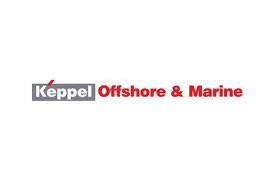
Listed shipping firm Keppel Philippines Marine Inc. (KPMI) will voluntarily delist its shares from the Philippine Stock Exchange (PSE) by the end of October this year after failing
to meet public float requirements for locally listed firms.
The company was earlier ordered by the PSE to have at least 10 percent of its shares listed and traded on the open market.
“Under the rules, non-compliance with the minimum public float shall subject the issuer to monetary penalties and could be a ground for involuntary delisting,” KPMI said in a disclosure.
Instead of complying, the local subsidiary of Singapore’s KS Investments Pte. Ltd. (KSI), said it would give up its status as a publicly listed firm.
“The Board of Directors of KPMI hereby resolves to delist the shares of the corporation from the PSE effective October 28,” the company told the PSE on Friday.
Only 4.17 percent of the company’s shares are held by minority shareholders, below the 10-percent required by the Philippine Stock Exchange (PSE).
“In this connection, KPMI has received… a letter from Nelson Yeo Chien Sheng, Director of KS Investments Pte. Ltd. (KSI)… of its intention to make a tender offer to the stockholders of KPMI holding the remaining 83.7 million minority shares which comprise 4.17 percent of KPMI’s outstanding capital stock,” the company said in a previous disclosure.
KSI said it would make a tender offer for the shares still held by minority investors for P3 each.
“KPMI does not foresee capital-raising activities by offering shares to the public in the near future,” the company said.
The tender offer period will be from Aug. 1 to Sept. 9 this year.
Last January, the PSE issued an order to all listed firms to comply with existing rules that require public companies to have at least 10 percent of their shares held by public investors.
Several firms have signified their intention to comply with this rule, including San Miguel Corp., and Metro Pacific Tollways Corp.
KPMI posted a 71-percent drop in earnings in the first quarter of the year to P52.93 million due to lower demand for the company’s ship-repair services. This makes up about 87 percent of the company’s total revenue.
Source: Business Inquirer
We use cookies to improve your experience. By continuing to use our site, you accept our Cookies, Privacy Policy,Terms and Conditions. Close X